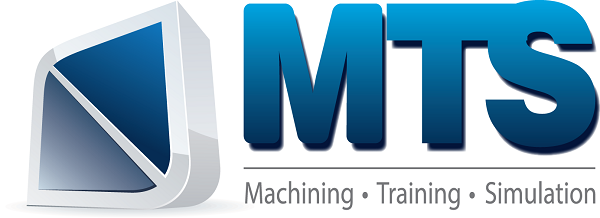The CNC Production Specialist (CCI) Certification
Overview of the Certification
The CNC (computer numeric controlled) Production Specialist (CCI) certification enables participants to show their knowledge of computer-aided programming systems of CAD/CNC coupling and the CIM environment. They are able to generate CNC programs on their own with a graphical programming system and to apply their knowledge to multi-axial turning and milling centers. Topics will include application software, input and output devices, CAD system 2D/3D, menu-tablet-oriented operation, basic drawing commands, object snap functions, editing functions, layers, formats, CAD/CAM coupling, program transfer, drawing jigs, program documentation, transmitting technical and organizational data, data exchange formats, CAD 3D/CNC coupling, interfaces, transmission conditions, program and run-time optimization, program management, CNC operation, graphical simulation and CNC machining.
Upon successful completion of the exam, participants will be able to earn the CCI certification, making them more attractive to companies domestically and abroad. IHK provides the content and oversees awarding student certification upon successful completion of the exam.
How Participants Can Benefit from this Certification
The shortage of employees with CNC skills has been well documented. Many manufacturers continue to struggle finding qualified candidates with CNC training or experience. The CNC Production Specialist Certification gives participants the skills needed for this field that is in high demand. The certification greatly improves a candidate's ability to obtain employment in a manufacturing career.

Participant Requirements
- Each candidate must be at least 16 years old to receive a CNC Production Specialist Certification
- A High School Diploma or equivalent is recommended, but not required
- Basic math and reading comprehension is necessary for successful completion of the certification assessment test
- Basic CNC machine and programming knowledge is also necessary for successful completion of the certification assessment test
- Each participant must be comfortable with mouse and keyboard operation, as well as navigating the testing application
Knowledge Needed to Complete the Exam
- Applying Technology to Tasks: Participants must have understanding of CNC operation and programming as well as the programming of control panels of CNC machines.
- Memory Recall: Participants must know key terminology of CNC machines and CNC programming to succeed on the CNC Production Specialist Certification’s assessment test.
- Basic CNC Skills: Basic CNC machine and programming knowledge is also necessary for successful completion of the certification assessment test.
Who Benefits from this Certification
- Workers whose jobs may be at risk, or workers who have lost a job and need to return to the workforce
- Individuals coming out of the military
- Individuals wanting to move into a technical and highly valuable field
- Workers ready for advanced professional engagement
- Students desiring a career in manufacturing production
The CNC Production Specialist Certification Exam
The format of the CNC Production Specialist Certification exam is a cloze deletion test. Cloze deletion tests require an understanding of context and terminology to successfully complete missing content. The exam format consists of a portion of text with certain words omitted and each participant is prompted to replace the missing words.
The exam takes place over a four (4) hour period and consists of fifty (50) questions.
A score of 70% or better is required to earn the CNC Production Specialist Certification. The exam will be graded by IHK and students receive their results and their certification, if earned, within ten (10) business days.
A candidate may retake a failed exam. The candidate must wait a full 15 days before retaking a failed test. After 3 failed attempts, the individual must wait 60 days before taking the test again.
Testing Procedures
All proctors for MTS adhere to the following testing standards to ensure an accurate score for each student:
- Tell students that results are automatically tabulated by IHK in Germany. No grading is performed locally.
- Circulate the room and watch for irregularities.
- Assigned seating chart for each testing session.
- List start/stop times on the front overhead monitors.
- Hand out scratch paper using a different color each day and shred it when the test is finished.
- Inform students they will not be able to bring cell phones or electronic devices to the test.
- Proctors are prohibited from reading the newspaper or talking on a cell phone.
- Consider variables that can affect the test results. For students, fatigue, motivational level, physical discomfort and text anxiety can be variables. Light levels, temperature, noise level, ventilation and other distractions can be environmental variables.
- Create and maintain appropriate testing environment by appropriately spacing/seating of students and distributing and collecting materials in the proper manner.
